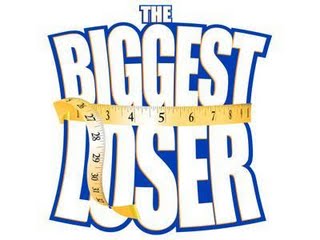 Anyone who has ever been desperate to lose weight, knows that extreme diet measures to drop a few pounds is sadly, just as common as scarfing down a quart of Rocky Road ice cream once the goal weight is met.
Anyone who has ever been desperate to lose weight, knows that extreme diet measures to drop a few pounds is sadly, just as common as scarfing down a quart of Rocky Road ice cream once the goal weight is met.
In a recent article in The New York Times, a very eye-opening and quite controversial light has been shed on the diet practices of a few of the Biggest Loser contestants. And while they don’t involve eating pints of ice cream, they do question the ethical and safety regulatory practices of NBC’s popular weight loss reality series.
From purposefully drinking as little water as possible drop a few pounds to working out in layers of clothing when the cameras were turned off, past Biggest Loser contestants are openly discussing some of the behind-the-scenes diet practices they would do to lose weight before stepping on the scale for their weekly weigh-in’s.
For instance, Kai Hibbard, a contestant from Biggest Loser Season 3, admitted to voluntarily dehydrating herself 24 hours before her weekly weigh-in. And she was not just an outlier. In fact, a few other contestants have admitted to engaging in the same kind of forced dehydration as Hibbard. To add a bit more fuel to the fire, during the current season, Biggest Loser Season 8, two contestants have already been taken to the hospital after suffering health ailments due to their extreme protocols for diet and exercise mixed in with their overweight health status. This combination can result in not just electrolyte imbalance, but also heat exhaustion and in some cases, even death.
The problem is not so much in the show itself but rather what happens when the cameras stop rolling. Biggest Loser trainers, Jillian Michaels and Bob Harper scrutinize every step walked and every ounce of chicken breast eaten during the show’s taping hours, but when the cameras stop, the two trainers’ hypervigilant eyes also close to what their teams are doing behind their well-sculpted backs. Michaels was quoted in The New York Times article as saying that what some contestants do to lose weight is the unfortunate “dark side of the show.”
Biggest Loser producers go to extreme lengths to medically screen contestants before and during the show. In addition, a team of medical doctors, health experts and dietiticans supervise the show’s diet and exercise routines. But despite these cautionary steps, some are concerned that a more serious consequence of one of NBC’s most-watched prime-time programs is just waiting in the wings.
“I’m waiting for the first person to have a heart attack,” said Dr. Charles Burant, a professor of internal medicine at the University of Michigan Health System director of the Michigan Metabolomics and Obesity Center.
Visit The New York Times article to read the complete story.
